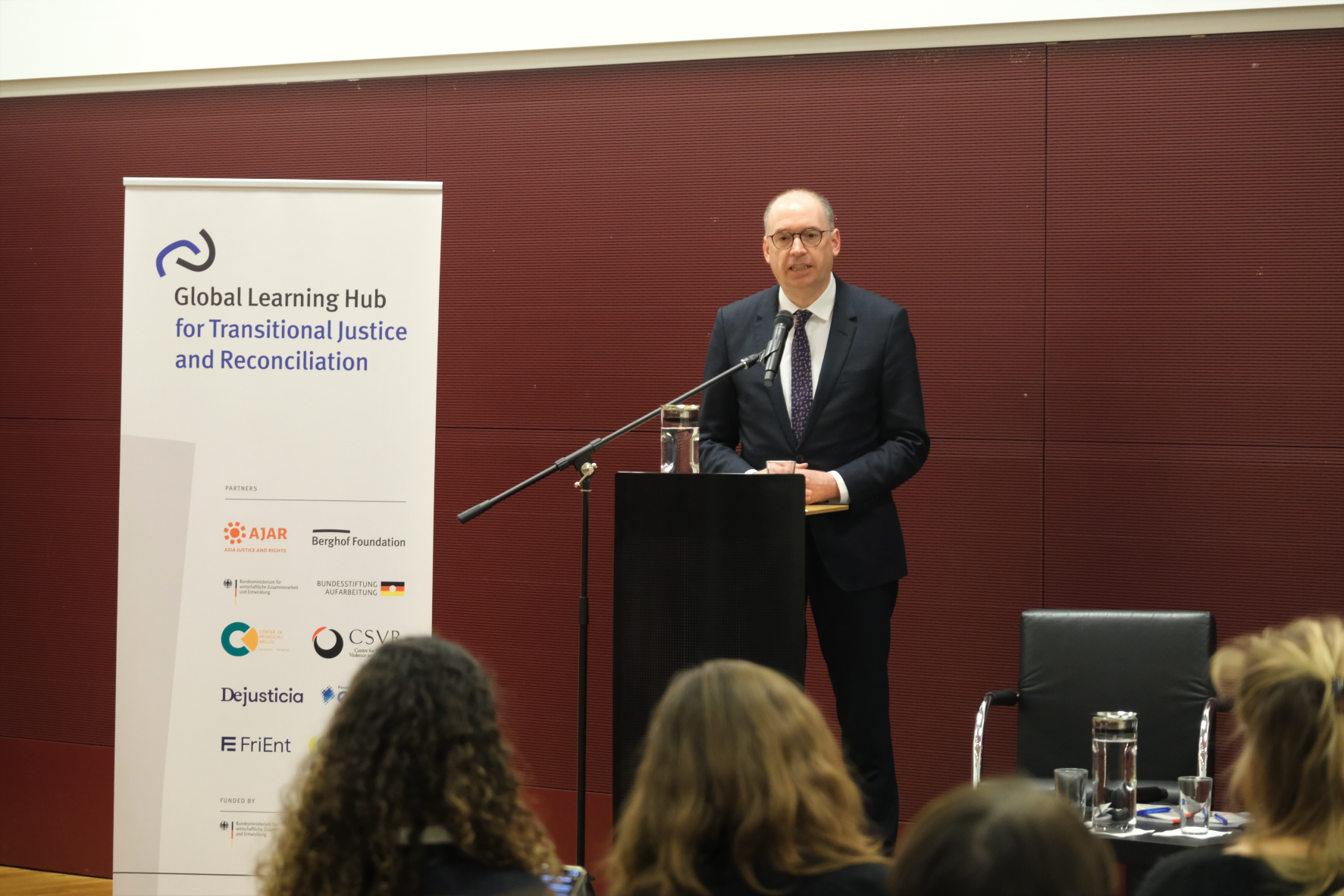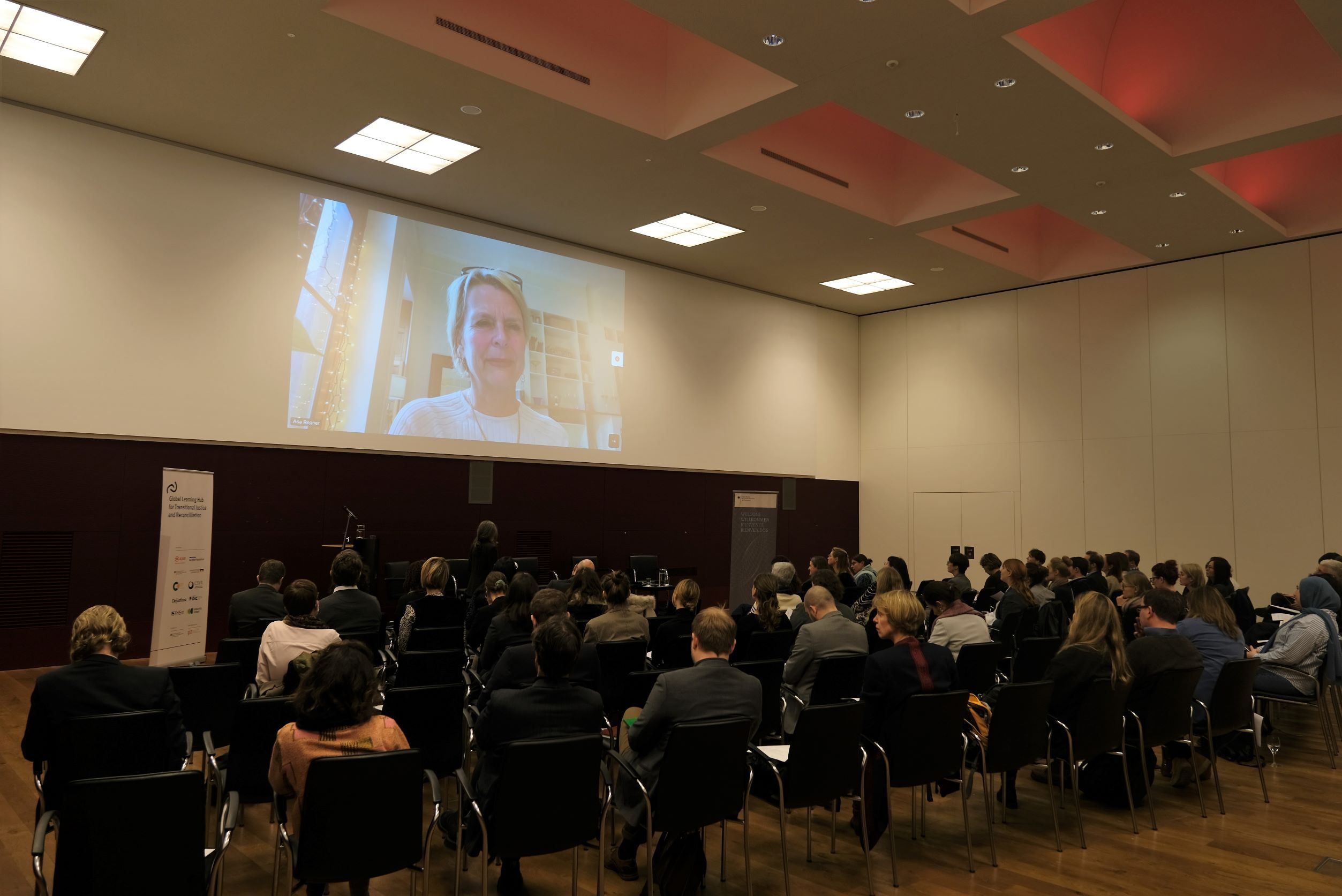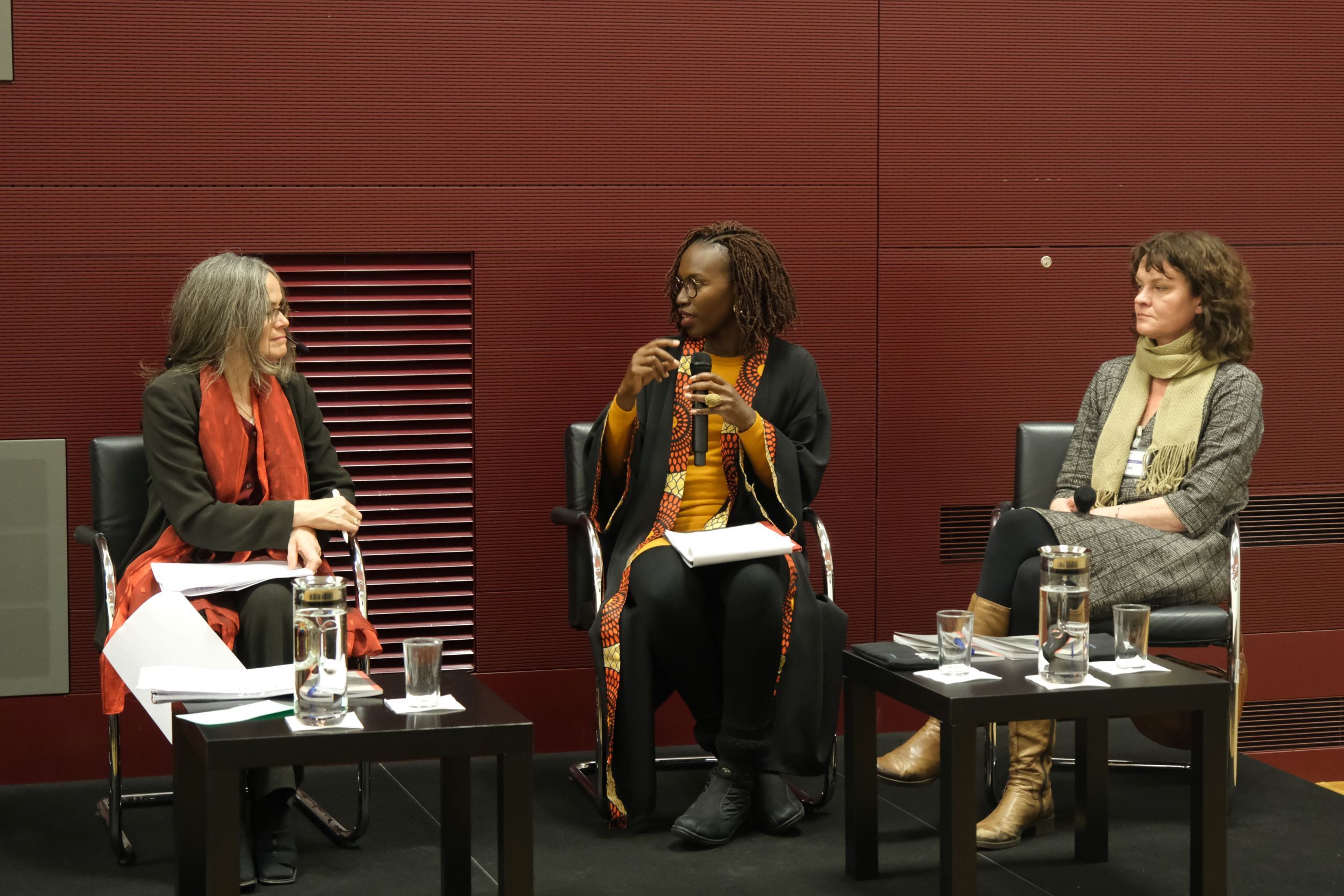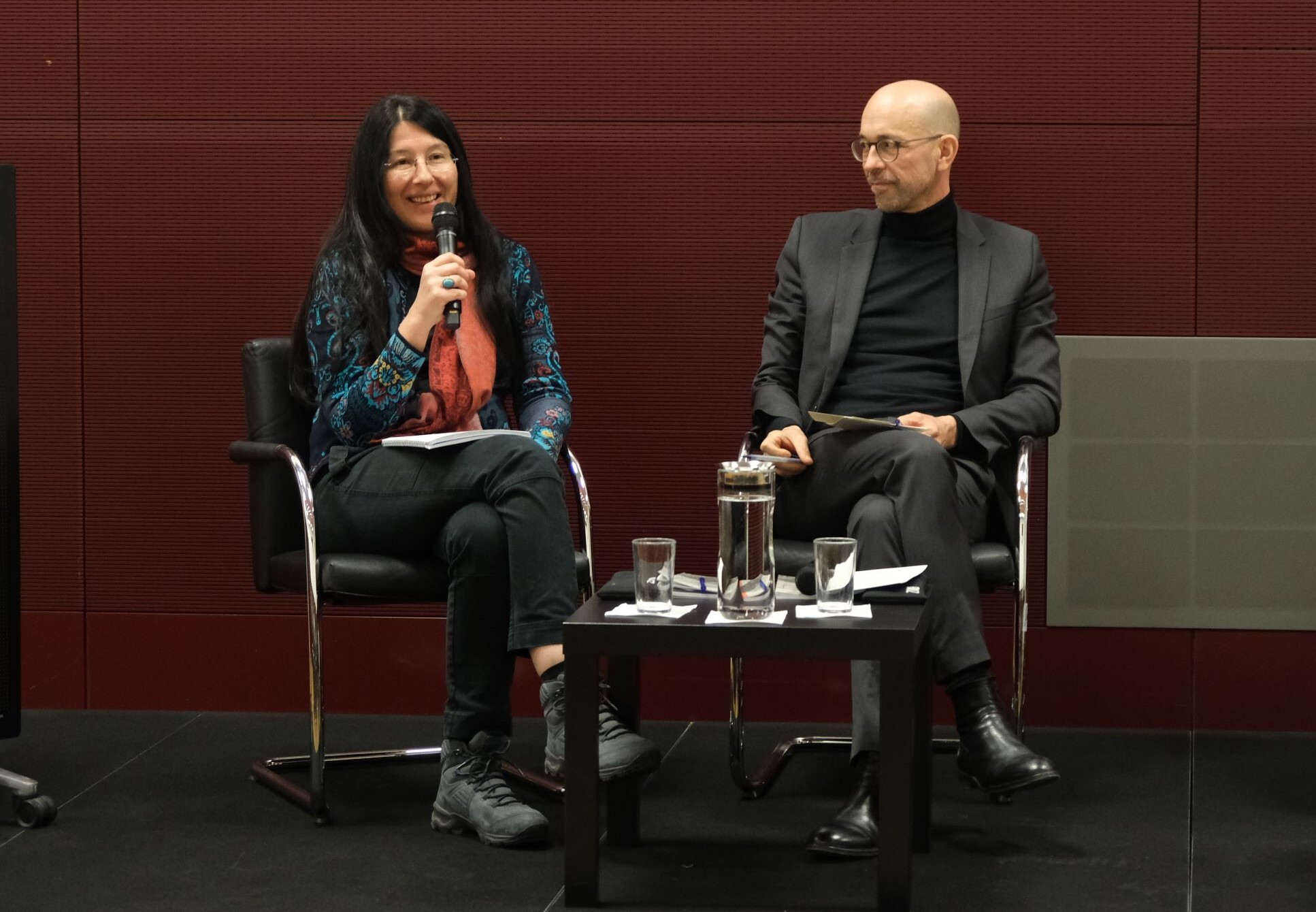FEATURE | 9 Feb 2023
The gender-transformative potential of transitional justice
How dealing with the past processes can work for and with women
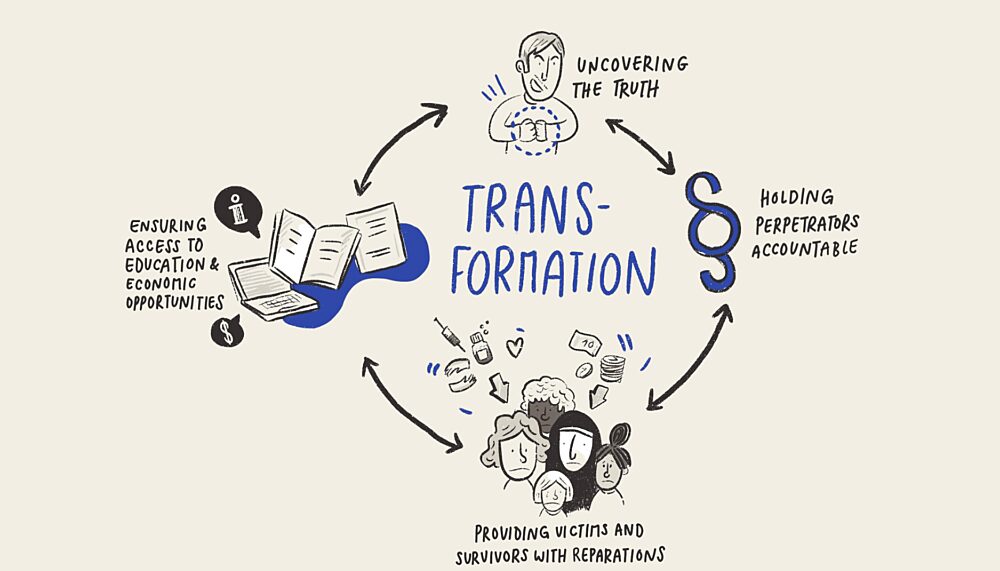
During our second dialogue event, we discussed how transitional justice can contribute to the transformation of discriminatory gender structures.
After conflicts, experiences of violence continue to shape people's lives in gender-specific ways. While men usually reclaim positions of power, women often remain financially and politically vulnerable. As a result, the conditions that led to sexual and gender-based harm are rarely addressed, making a reoccurrence of violence likely. Efforts to come to terms with the past—known collectively as transitional justice—therefore cannot be satisfied with returning a society to the status quo ante. They need to transform patriarchal power structures and facilitate the meaningful participation of women to foster peace.
The Global Learning Hub for Transitional Justice and Reconciliation, a joint initiative of the Berghof Foundation and the German Ministry for Economic Development and Cooperation, organised a dialogue between practitioners and policy-makers to examine how transitional justice should work for and with women.
Meaningful participation of women
Åsa Regnér, Deputy Executive Director of UN Women, highlighted that to be transformative, transitional justice needs to “centre women’s meaningful participation, at all stages and at all levels”. From female members of truth commissions to survivor leadership, this can take many forms. Women’s meaningful participation requires that women are able to enter spaces where decisions are made, can form coalitions, and be in a position to influence outcomes, according to a UN Women report. If these conditions are met, women can act as agents of change to challenge power structures and to increase the effectiveness of transitional justice processes.
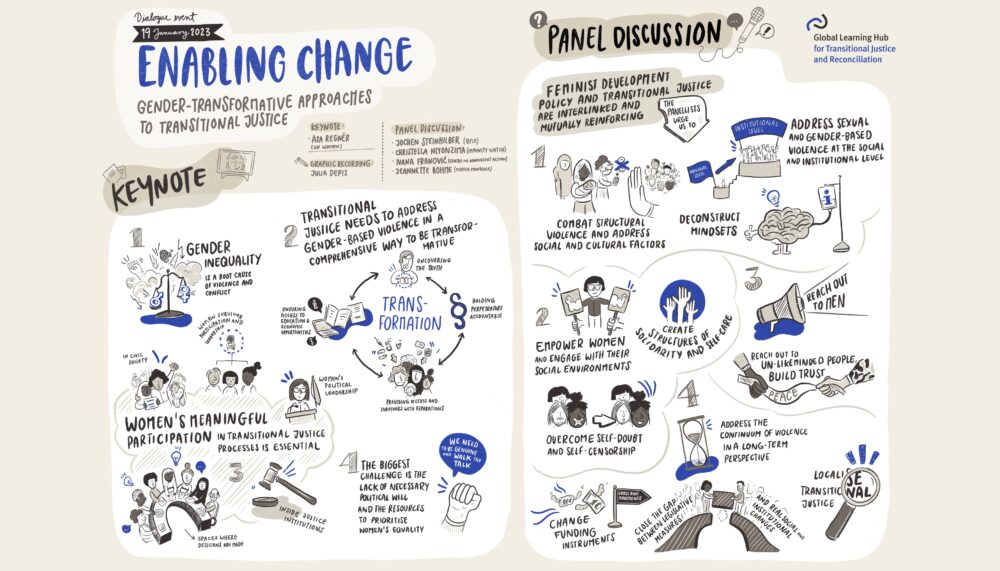
Regnér emphasised that transforming gender norms calls for a holistic approach to transitional justice. In addition to uncovering the truth about gender-based harm and holding perpetrators to account, such an approach requires “taking steps to address other forms of structural discrimination, including by reforming discriminatory laws, ensuring access to education, economic opportunities, and the full range of sexual and reproductive health rights”. Taking these steps is essential for guaranteeing that the violence does not recur.
Need for structural change
In the ensuing panel discussion, Jochen Steinhilber (Federal Ministry for Economic Cooperation and Development), Christella Niyonzima (Impunity Watch), Ivana Franović (Centre for Nonviolent Action), and Jeannette Böhme (medica mondiale) discussed concrete examples and provided policy recommendations. Böhme emphasised that sexual and gender-based violence needs to be addressed at the social and institutional level, arguing that “just providing services to survivors of sexual and gender-based violence is not enough, it needs to be combined with advocacy for changing discriminatory gender relations”. Steinhilber concurred by pointing out that transitional justice processes are especially suitable for combatting the structural violence underpinning gender inequality. Such processes, however, take time and require long-term political and financial support.
By describing efforts of Burundi women running for office, Niyonzima highlighted the importance of empowering women and helping them overcome self-doubt. All panellists agreed that this required creating structures of solidarity and care as well as supporting the organisation of women at the local level. Franović also pointed out that transforming gender norms has to involve reaching out to unlike-minded people. Referring to her work with war veterans in former Yugoslav countries, she explained how building trust with and between ex-combatants can take time, but once established can be a powerful resource for peace.
Click here to learn more about transitional justice. You can download the graphic recording here.
The Global Learning Hub for Transitional Justice and Reconciliation is a network of organisations from Germany and across the world, initiated by the Berghof Foundation and the German Federal Ministry for Economic Cooperation and Development in early 2022. The Hub reflects a diversity of experiences, benefits from the respective strength of each partner and promotes their work. We want to facilitate an inspiring space for dialogue and learning that is driven by solidarity, inclusivity and innovation. By building bridges, generating knowledge and amplifying voices the Hub seeks to advance the policy and practice of dealing with the past to strengthen peace and justice.
Media contact
You can reach the press team at:
+49 (0) 177 7052758
email hidden; JavaScript is required
